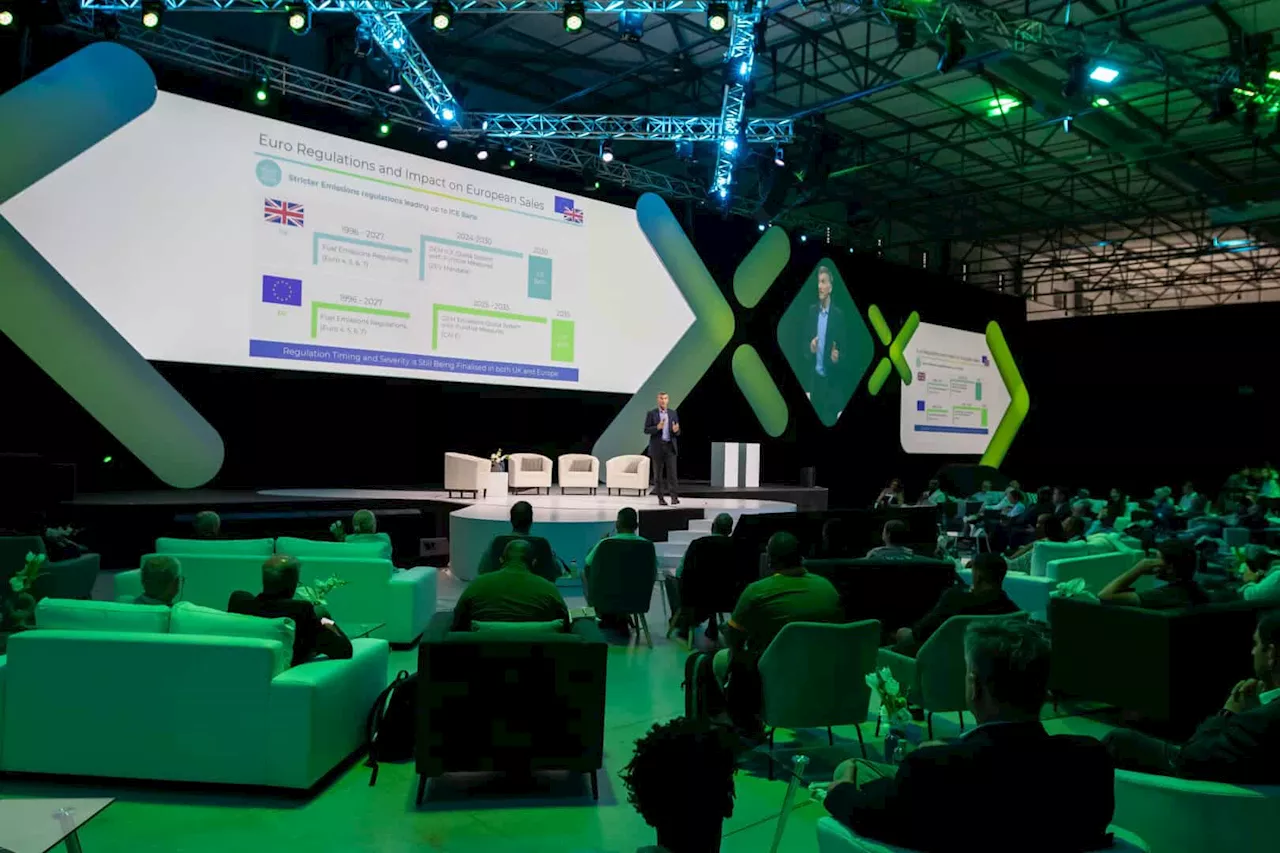Toyota's foray into space encompasses investments in rocket manufacturing, partnerships with space agencies, and explorations into LEO satellite communications, revealing a strategic shift towards diversifying beyond traditional automotive manufacturing.
Toyota , the Japanese automotive giant, has been actively expanding its reach into the space sector. In January, the company secured both first and second place in the car category. Furthermore, through its subsidiary Woven by Toyota , it invested US$44.4 million in Interstellar Technologies, a Japanese space start-up specializing in the mass production of rockets.
Toyota's manufacturing expertise will be instrumental in advancing rocket development and meeting the growing demand for small satellite launches.Space is a core component of Toyota's long-term strategy. This foray began in 2019 with a partnership with the Japanese space agency (Jaxa) to contribute to NASA's Artemis program and co-develop the Lunar Cruiser. Other car manufacturers have also ventured into space-related projects. In 2015, Audi collaborated with Part-Time Scientists to develop a lunar rover utilizing Audi's Quattro all-wheel-drive technology, although this endeavor was ultimately unsuccessful. More recently, in January 2023, Honda deepened its partnership with Jaxa to build a prototype of a calculative renewable energy system. This advanced system combined Honda's high differential pressure water electrolysis technology with a fuel cell system, enabling continuous production of oxygen, hydrogen, and electricity from solar energy and water. Similar investments and partnerships have been announced by Hyundai, Nissan, and Chrysler.While Toyota's – and other car manufacturers' – partnerships with the Artemis program and with LEO satellite rocket manufacturers are both space-related investments, their strategic roles differ significantly. Investments related to the moon program were primarily driven by factors such as technology innovation and R&D opportunities, brand and image enhancement, cross-industry collaboration, and growth in sustainability and Earth systems. Essentially, car manufacturers viewed space programs not as immediate revenue streams but as platforms for innovation, branding, and business expansion, while also aligning with broader sustainability and technological trends. Investment partnerships by car manufacturers with players in the LEO industry are distinct and directly impact strategic agendas, as well as revenue, on both sides of the business case. LEO constellations rocket and satellite manufacturer industries provide prospects for new complementary revenue potential, while LEO communication services offer opportunities to drive connected-car and other vehicle communication requirements.The shift from manufacturing vehicles to launching satellites might seem drastic, but several potential avenues exist for aligning car companies and the LEO satellite sector, either directly or through partnerships. To drive connected-car models, car manufacturers could develop into one of the biggest end-user segments of the LEO constellations, offering sustainable long-term revenue. While LEO constellations are currently focused on consumer broadband services, price points in this sector, as is the case with Wi-Fi connectivity, will always be under pressure and expected to decline over time. On the other hand, high-availability communications services for industrial applications such as the connected car can offer an attractive long-term revenue segment for LEO operators. For example, car makers such as Ford and BMW have already formed collaborations with companies like OneWeb to ensure vehicle connectivity. Car manufacturers might even build and operate their own satellites, creating new revenue streams beyond traditional vehicle sales. For example, GM and Honda have invested in new technologies such as 5G networks and autonomous driving systems. If a satellite-based solution (like LEO networks) becomes a critical part of their mobility services, they could push further into the satellite industry. Car manufacturers have significant expertise in engineering, systems integration, and complex technology, which are key components of building satellites. If the need arises, car makers with established engineering capabilities could develop satellite technology. For example, Tesla, with its strong focus on autonomous driving, could potentially expand into satellite communications for vehicle connectivity. Moreover, the increasing importance of sustainable technologies such as renewable energy and electric propulsion could encourage car manufacturers to explore their application in satellite technology.Just as traditional car manufacturers are diversifying into areas like AI, robotics, and energy (with companies like Volkswagen and Mercedes-Benz investing in battery tech), they could also see value in investing in satellite companies. Car manufacturers have enormous financial resources and could leverage their investments in satellite communications or infrastructure to enhance their vehicles' capabilities and data services
Toyota Space Exploration Satellite Industry LEO Constellations Connected Cars Automotive Manufacturing Artemis Program Sustainability Technology Innovation
South Africa Latest News, South Africa Headlines
Similar News:You can also read news stories similar to this one that we have collected from other news sources.
 Payment companies form new industry body in South AfricaNon-bank players in the payments space have joined forces to drive digital financial inclusion.
Payment companies form new industry body in South AfricaNon-bank players in the payments space have joined forces to drive digital financial inclusion.
Read more »
 Toyota South Africa Forecasts Growth and Highlights Industry Trends at State of the Motor Industry EventAt Toyota's annual State of the Motor Industry (SOMI) event, Andrew Kirby, president and CEO of Toyota South Africa Motors (TSAM), outlined the challenges and opportunities facing the South African automotive sector. Kirby emphasized the need to exceed 600,000 annual vehicle sales to attract foreign direct investment and maintain local production. He also highlighted key industry trends such as the shift towards SUVs, the increasing demand for in-car technology, and the global transition towards NEVs. The event showcased several new Toyota and Lexus models and celebrated Toyota Gazoo Racing's success at the Dakar Rally.
Toyota South Africa Forecasts Growth and Highlights Industry Trends at State of the Motor Industry EventAt Toyota's annual State of the Motor Industry (SOMI) event, Andrew Kirby, president and CEO of Toyota South Africa Motors (TSAM), outlined the challenges and opportunities facing the South African automotive sector. Kirby emphasized the need to exceed 600,000 annual vehicle sales to attract foreign direct investment and maintain local production. He also highlighted key industry trends such as the shift towards SUVs, the increasing demand for in-car technology, and the global transition towards NEVs. The event showcased several new Toyota and Lexus models and celebrated Toyota Gazoo Racing's success at the Dakar Rally.
Read more »
 SA becomes ‘reservoir’ for data centre spacePresident Cyrill Ramaphosa backs the burgeoning data centre industry as the next growth frontier.
SA becomes ‘reservoir’ for data centre spacePresident Cyrill Ramaphosa backs the burgeoning data centre industry as the next growth frontier.
Read more »
 Get your study space ready – the best student connectivity guide by AxxessWhether you’re moving into university accommodation or a private student residence, Axxess offers multiple solutions to keep you connected throughout your academic years.
Get your study space ready – the best student connectivity guide by AxxessWhether you’re moving into university accommodation or a private student residence, Axxess offers multiple solutions to keep you connected throughout your academic years.
Read more »
 Rapper Nadia Nakai Shares Clip of Her Renovated Living Space: “I Love My New TV Area”The South African talented rapper and businesswoman Nadia Nakai recently shared on her social media page that she has been renovating her living space.
Rapper Nadia Nakai Shares Clip of Her Renovated Living Space: “I Love My New TV Area”The South African talented rapper and businesswoman Nadia Nakai recently shared on her social media page that she has been renovating her living space.
Read more »
 Pokémon TCG Pocket's First 'Real' Expansion, Space-Time Smackdown, Launches SoonThe Pokémon Trading Card Game Pocket app is getting its first major expansion, Space-Time Smackdown, launching on January 30th. The expansion focuses on Generation IV Pokémon, featuring legendary Pokémon Dialga and Palkia as mascots and new Pokémon ex cards.
Pokémon TCG Pocket's First 'Real' Expansion, Space-Time Smackdown, Launches SoonThe Pokémon Trading Card Game Pocket app is getting its first major expansion, Space-Time Smackdown, launching on January 30th. The expansion focuses on Generation IV Pokémon, featuring legendary Pokémon Dialga and Palkia as mascots and new Pokémon ex cards.
Read more »
